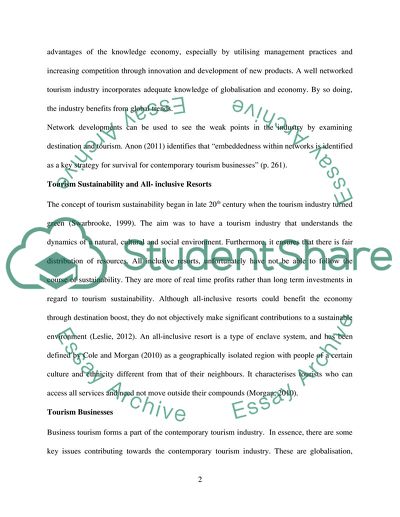Cite this document
(“'All-inclusive resorts can never be reconciled with principles of Essay”, n.d.)
'All-inclusive resorts can never be reconciled with principles of Essay. Retrieved from https://studentshare.org/tourism/1655513-all-inclusive-resorts-can-never-be-reconciled-with-principles-of-sustainability
'All-inclusive resorts can never be reconciled with principles of Essay. Retrieved from https://studentshare.org/tourism/1655513-all-inclusive-resorts-can-never-be-reconciled-with-principles-of-sustainability
('All-Inclusive Resorts Can Never Be Reconciled With Principles of Essay)
'All-Inclusive Resorts Can Never Be Reconciled With Principles of Essay. https://studentshare.org/tourism/1655513-all-inclusive-resorts-can-never-be-reconciled-with-principles-of-sustainability.
'All-Inclusive Resorts Can Never Be Reconciled With Principles of Essay. https://studentshare.org/tourism/1655513-all-inclusive-resorts-can-never-be-reconciled-with-principles-of-sustainability.
“'All-Inclusive Resorts Can Never Be Reconciled With Principles of Essay”, n.d. https://studentshare.org/tourism/1655513-all-inclusive-resorts-can-never-be-reconciled-with-principles-of-sustainability.


